Over 30 years of anarchist writing from Ireland listed under hundreds of topics
Magazine
Irish Anarchist Review 4
 Welcome to issue 4 of the Irish Anarchist Review, produced by the Workers Solidarity Movement. This magazine aims to provide a forum for the exploration of theories, thoughts and ideas about political struggle, and where we would like to go and how to get there from the current situation. This magazine also seeks to be a place where people interested in revolutionary politics can read first-hand reports from people involved at the ‘coal-face’ of working-class struggles and perhaps reply to it with an article of their own. We believe there can be no revolution worthy of the name without a genuine sharing of political ideas between people.
Welcome to issue 4 of the Irish Anarchist Review, produced by the Workers Solidarity Movement. This magazine aims to provide a forum for the exploration of theories, thoughts and ideas about political struggle, and where we would like to go and how to get there from the current situation. This magazine also seeks to be a place where people interested in revolutionary politics can read first-hand reports from people involved at the ‘coal-face’ of working-class struggles and perhaps reply to it with an article of their own. We believe there can be no revolution worthy of the name without a genuine sharing of political ideas between people.
An introduction to Michel Foucault's concept of Power
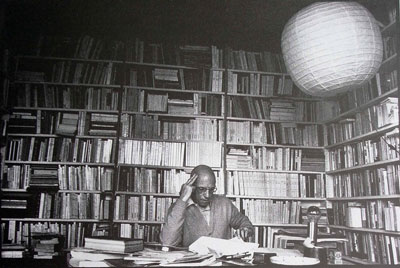 Michel Foucault is a philosopher whose politics everybody seems to have a differing opinion on. He has been called a disguised Marxist, both a secret and explicit anti-Marxist, a nihilist, a new conservative, a new liberal, a neutral interpretivist, a crypto-normativist, a principled anarchist as well as a dangerous left-wing one, and even a Gaullist technocrat. An American professor complained that an obvious KGB agent like Foucault was being invited to talk at his country’s universities and the Eastern European press of the Soviet era denounced him as being an accomplice of the dissidents.
Michel Foucault is a philosopher whose politics everybody seems to have a differing opinion on. He has been called a disguised Marxist, both a secret and explicit anti-Marxist, a nihilist, a new conservative, a new liberal, a neutral interpretivist, a crypto-normativist, a principled anarchist as well as a dangerous left-wing one, and even a Gaullist technocrat. An American professor complained that an obvious KGB agent like Foucault was being invited to talk at his country’s universities and the Eastern European press of the Soviet era denounced him as being an accomplice of the dissidents.
The basics of Participatory Economics
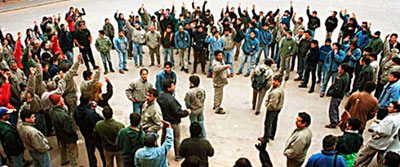 In the last issue we had a missive from the future. It told us of the great changes in the post-revolutionary anarchist world. In this article of the future society series, I will focus solely upon an anarchist vision of a future economy. This is called participatory economics, often abbreviated parecon, a classless economic system proposed primarily by activist and political theorist Michael Albert and, among others, economist Robin Hahnel. The model was developed through the 70s and 80s and the first exclusively parecon books were published in 1991. Many of their early writings concentrated on what they perceived as flaws in Marxist and Marxist-Leninist theory.
In the last issue we had a missive from the future. It told us of the great changes in the post-revolutionary anarchist world. In this article of the future society series, I will focus solely upon an anarchist vision of a future economy. This is called participatory economics, often abbreviated parecon, a classless economic system proposed primarily by activist and political theorist Michael Albert and, among others, economist Robin Hahnel. The model was developed through the 70s and 80s and the first exclusively parecon books were published in 1991. Many of their early writings concentrated on what they perceived as flaws in Marxist and Marxist-Leninist theory.
Revolution & Counter Revolution in Barcelona
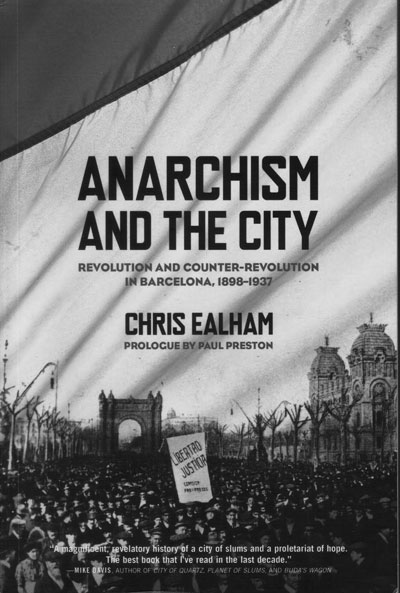 Seventy-five years ago, in Barcelona and across much of the rest of Spain, anarchists and other radical workers, in order to stop Franco’s attempted coup, stormed army barracks, took over the factories and kicked off “the greatest revolutionary festival in the history of contemporary Europe.”(p.173). A familiar story no doubt, however, unlike many ostensible working class histories of the period, that are often just histories of workers’ organisations, Ealham’s engaging writing and theoretical fluency give us a complete view of proletarian life, from community centres in the city’s slums, to unemployed groups of shoplifters, to general strikes and uprisings.
Seventy-five years ago, in Barcelona and across much of the rest of Spain, anarchists and other radical workers, in order to stop Franco’s attempted coup, stormed army barracks, took over the factories and kicked off “the greatest revolutionary festival in the history of contemporary Europe.”(p.173). A familiar story no doubt, however, unlike many ostensible working class histories of the period, that are often just histories of workers’ organisations, Ealham’s engaging writing and theoretical fluency give us a complete view of proletarian life, from community centres in the city’s slums, to unemployed groups of shoplifters, to general strikes and uprisings.
Greece & the crisis - Seeds of Hope
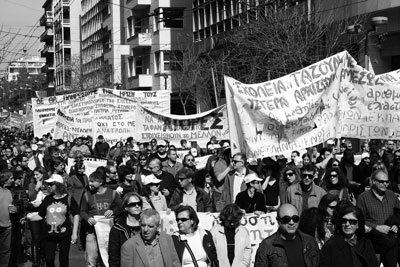 There is no doubt that the political history of Greece is full of oppression and political struggle - from dictatorships to political prosecutions, jailings, exiles, shootings, torture, civil war, and countless strikes, demonstrations, occupations and protests that are put down by extreme state violence.
There is no doubt that the political history of Greece is full of oppression and political struggle - from dictatorships to political prosecutions, jailings, exiles, shootings, torture, civil war, and countless strikes, demonstrations, occupations and protests that are put down by extreme state violence.
Interview: Conor McCabe on Sins of the Father
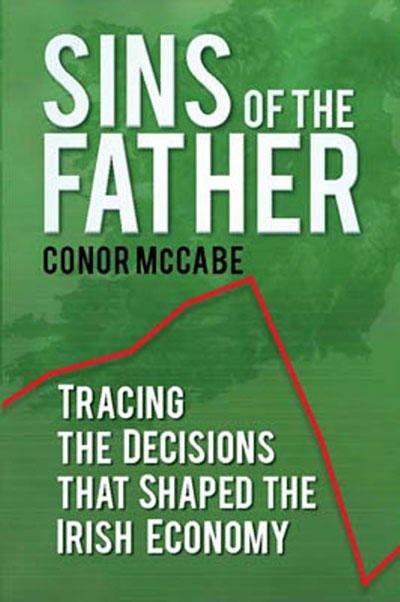 Journalist and writer Conor McCabe’s book ‘Sins Of The Father’ attempts, in the author’s own words, “…to shine a light on the reasons why Ireland has the businesses it has, and why banks and speculators yield so much power and influence.” The book has been acknowledged as a significant contribution to the analysis of the political and economic decisions that have brought the Irish economy to ruin. James McBarron interviewed McCabe for Irish Anarchist Review
Journalist and writer Conor McCabe’s book ‘Sins Of The Father’ attempts, in the author’s own words, “…to shine a light on the reasons why Ireland has the businesses it has, and why banks and speculators yield so much power and influence.” The book has been acknowledged as a significant contribution to the analysis of the political and economic decisions that have brought the Irish economy to ruin. James McBarron interviewed McCabe for Irish Anarchist Review
Review: Zapatista Spring
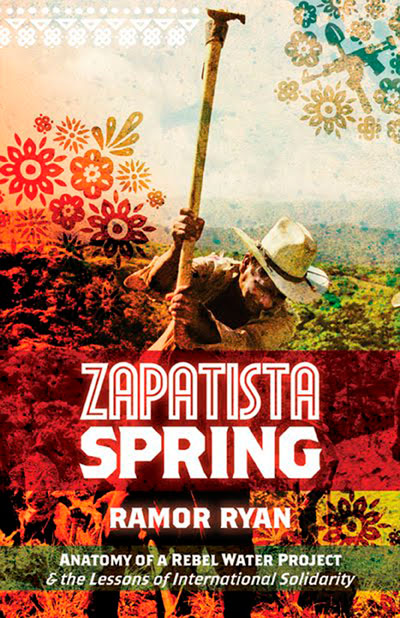 Editors’ Note: In this issue of the IAR we have the all too rare pleasure of reviewing a book by a fellow Irish anarchist. It’s Ramor Ryan’s Zapatista Spring, one of the most honest books yet published about the Zapatistas.
Editors’ Note: In this issue of the IAR we have the all too rare pleasure of reviewing a book by a fellow Irish anarchist. It’s Ramor Ryan’s Zapatista Spring, one of the most honest books yet published about the Zapatistas.
Resisting the lure of the Freeman movement
 The last few years have seen a significant growth in the Freeman of the Land movement. Increasingly, its voice is being heard at environmental and other anarchist based protests and events, from the various UK climate camps to Rossport Solidarity Camp.
The last few years have seen a significant growth in the Freeman of the Land movement. Increasingly, its voice is being heard at environmental and other anarchist based protests and events, from the various UK climate camps to Rossport Solidarity Camp.
What kind of democracy for the Arab world?
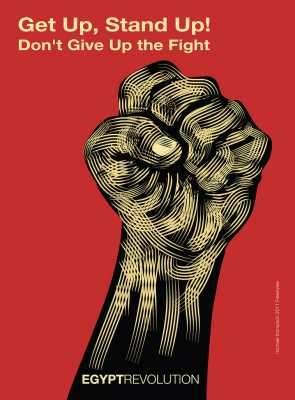 In a previous article, I said that the events shaking the Arab world today are as relevant as those that shook the world in 1989 [1]. Not only can parallels be made on the extent and depth of discontent over a vast geographical area, but also because this whirlwind of popular fury places a question mark over a particular geopolitical architecture that was hitherto believed to be as strong as steel. In this case, these long-standing dictatorships were fed, promoted and installed by the geo-strategic interests of the USA (and its junior partner, the EU) in an area of critical concern as far as oil is concerned. In 1989 the political consequences of the demonstrations were deep and long-lasting - the fall of "real socialist" regimes not only meant the fall of a few unpleasant bureaucratic dictatorships, but because of the relative weakness of a truly libertarian and revolutionary Left, represented the fall of a set of political values and horizons that were incorrectly associated with the Soviet bloc, and the overwhelming rise of neo-liberalism as the unquestioned system in the economic, political, values and ideological field.
In a previous article, I said that the events shaking the Arab world today are as relevant as those that shook the world in 1989 [1]. Not only can parallels be made on the extent and depth of discontent over a vast geographical area, but also because this whirlwind of popular fury places a question mark over a particular geopolitical architecture that was hitherto believed to be as strong as steel. In this case, these long-standing dictatorships were fed, promoted and installed by the geo-strategic interests of the USA (and its junior partner, the EU) in an area of critical concern as far as oil is concerned. In 1989 the political consequences of the demonstrations were deep and long-lasting - the fall of "real socialist" regimes not only meant the fall of a few unpleasant bureaucratic dictatorships, but because of the relative weakness of a truly libertarian and revolutionary Left, represented the fall of a set of political values and horizons that were incorrectly associated with the Soviet bloc, and the overwhelming rise of neo-liberalism as the unquestioned system in the economic, political, values and ideological field.
Irish Anarchist Review 3
 Welcome to Issue 3 of The Irish Anarchist Review, produced by the Workers Solidarity Movement. This magazine aims to provide a forum for the exploration and discussion of theories, thoughts and ideas about where we are and where we would like to be in terms of political struggles today.
Welcome to Issue 3 of The Irish Anarchist Review, produced by the Workers Solidarity Movement. This magazine aims to provide a forum for the exploration and discussion of theories, thoughts and ideas about where we are and where we would like to be in terms of political struggles today.

